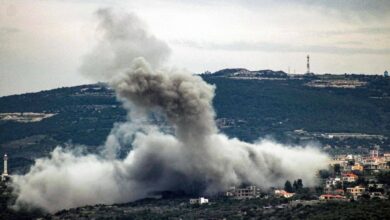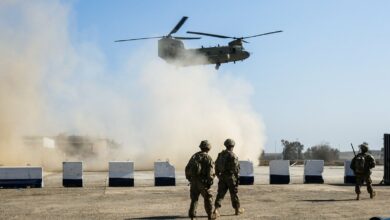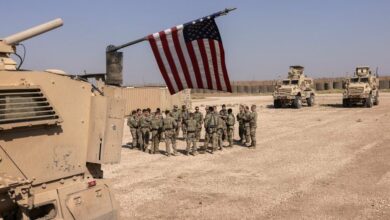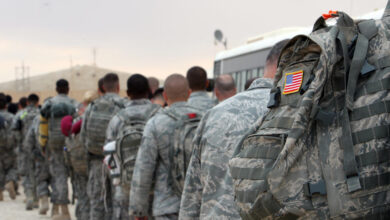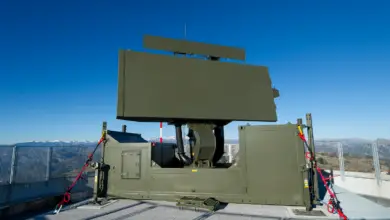US sending additional forces to protect embassy personnel in Iraq
The U.S. Department of Defense is sending additional military personnel to support staff at the American embassy in Iraq, Defense Secretary Mark Esper said on Tuesday, December 31.
“We are sending additional forces to support our personnel at the Embassy. As in all countries, we rely on host nation forces to assist in the protection of our personnel in country, and we call on the Government of Iraq to fulfill its international responsibilities to do so,” the Pentagon said in a statement attributed to Esper.
Protesters, many carrying flags of the Hashd al-Shaabi (Popular Mobilization Units) militias, demonstrated outside the embassy in Baghdad earlier Tuesday after weekend U.S. airstrikes on the Shia militia killed more than two dozen fighters.
U.S. Marines are typically tasked with force protection at American embassies.
“We have taken appropriate force protection actions to ensure the safety of American citizens, military personnel and diplomats in country, and to ensure our right of self-defense,” Esper said.
President Donald Trump earlier called on Iraq to “use its forces” to protect the embassy. Iraqi forces earlier fired teargas at the demonstrators after they burned flags outside the embassy gates and breached the outer wall. Caretaker Prime Minister Adel Abdul Mahdi urged the protesters to leave the Green Zone, the secure area that houses the U.S. and other diplomatic missions.
Abdul Mahdi on Tuesday called the American strikes an “unjust assault.”
US strikes on Kataib Hezbollah
U.S. airstrikes on five Kataib Hezbollah targets in Iraq and Syria have enraged Kataib Hezbollah supporters and prompted the Iraqi government to say it would review the continued presence of the U.S.-led Coalition against Islamic State in the country. Iraq and Iran both accused the U.S. of “supporting terrorism” and violating Iraq’s sovereignty with the strikes.
The weekend strikes came after the U.S. accused the Iran-backed PMU Kataib Hezbollah of carrying out a rocket attack on the K1 base near Kirkuk, about 260 km north of Baghdad. An American contractor was killed in the barrage and Iraqi Security Forces and U.S. military personnel were injured.
Kataib Hezbollah has vowed to retaliate against U.S. targets, vowing “to expel the brutal American enemy from our holy land.” On Monday, Abu Mahdi al-Muhandis, the de facto head of the Hashd al-Shaabi, said the response would be “very tough on the American forces in Iraq.”
Other Iran-linked Iraqi militias, including Asa’ib Ahl al-Haq, called for a unified response to avenge the deaths of the Kataib Hezbollah members.
Ten attacks since October 28 have left several Iraqi military personnel wounded and one dead and caused damage to the area around the Green Zone. The U.S. accuses Kataib Hezbollah of being behind most of the attacks.
Many of the PMU, also called the Popular Mobilization Forces, were folded into the U.S.-supported Iraqi Security Forces, but others largely operate independent of Baghdad’s authority. Kataib Hezollbah in particular maintains strong ties to Iran’s Islamic Revolutionary Guard Corps.



